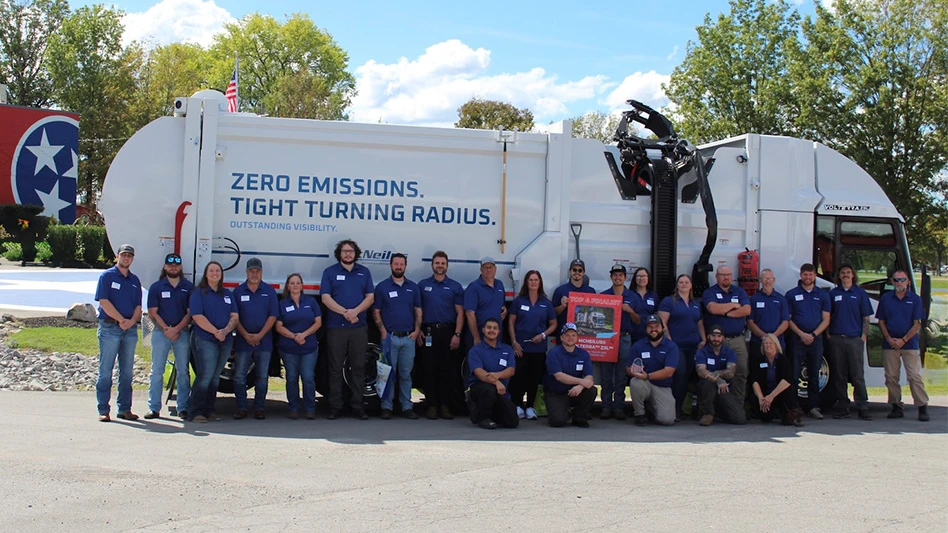Over the past month, the number of fatal incidents involving solid waste collection vehicles and employees has increased considerably, according to data compiled by the Solid Waste Association of North America (SWANA). Since March 14, the association says it is aware of at least 16 fatal incidents in the United States resulting in 18 fatalities, including eight in which a solid waste employee has been killed.
SWANA says that many workers may be concerned about the COVID-19 pandemic and that increased residential volume and operational changes may be disrupting routines and impacting productivity. The association says that despite COVID-19 concerns, solid waste collection workers must remain compliant with applicable safety rules and best practices on the job, including:
- wear a safety belt;
- never be on the riding step when the truck is backing;
- don’t use a cellphone when the truck is moving;
- always wear personal protective equipment (PPE); and
- comply with speed limits and other traffic laws.
“SWANA had observed a notable decrease in fatal incidents in the first two months of 2020 compared to the past two years, but starting in mid-March, we have seen a rapid increase in the frequency of these tragic events," SWANA Executive Director and CEO David Biderman says. "This coincides with the COVID-19 pandemic. Although solid waste workers are legitimately concerned about their health and the health of their families, they need to be safety-focused on the route and in postcollection operations."
“We remain diligent with all safety aspects of the job now with the added safety features of latex gloves and masks,” Sal Mastriani, director of risk management of Teaneck, New Jersey-based Interstate Waste Services. “Our team [has] responded impressively. Although we are troubled about an increase in fatal incidents nationally, we are fortunate that our incidents have decreased. In addition, I would urge everyone to keep an eye out for emotional stress and elevated anxiety among frontline workers, which may have contributed to some of the recent collisions others have seen.”
Since March 14, fatal incidents involving solid waste collection vehicles and personnel have occurred in Arizona, California, Florida, Kansas, Kentucky, Michigan, Minnesota, Missouri, North Carolina, New York, Ohio, Pennsylvania and Texas.
Sponsored Content
SENNEBOGEN 340G telehandler improves the view in Macon County, NC
An elevated cab is one of several features improving operational efficiency at the Macon County Solid Waste Management agency in North Carolina. When it comes to waste management, efficiency, safety and reliability are priorities driving decisions from day one, according to staff members of the Macon County Solid Waste Management Department in western North Carolina. The agency operates a recycling plant in a facility originally designed to bale incoming materials. More recently, the building has undergone significant transformations centered around one machine: a SENNEBOGEN telehandler (telescopic handler).
Get curated news on YOUR industry.
Enter your email to receive our newsletters.
Latest from Recycling Today
- ReMA to launch virtual fiber-focused event
- DuPont announces winners of Tyvek Sustainable Healthcare Packaging Awards
- HRH Metals gets new owner
- ESGL files provisional patent for acidic waste metal recovery technology
- Alabama awards $2.5M in grants to boost recycling efforts
- Sourgum expands services to Indianapolis
- Tomorrow Recycling seeks investment opportunities
- ArcelorMittal endorses EU steel trade measures







